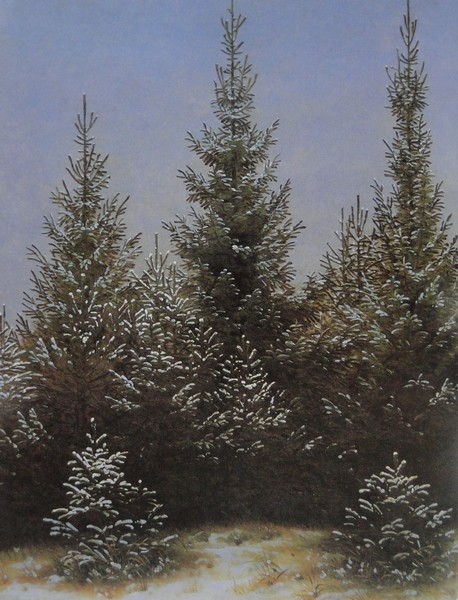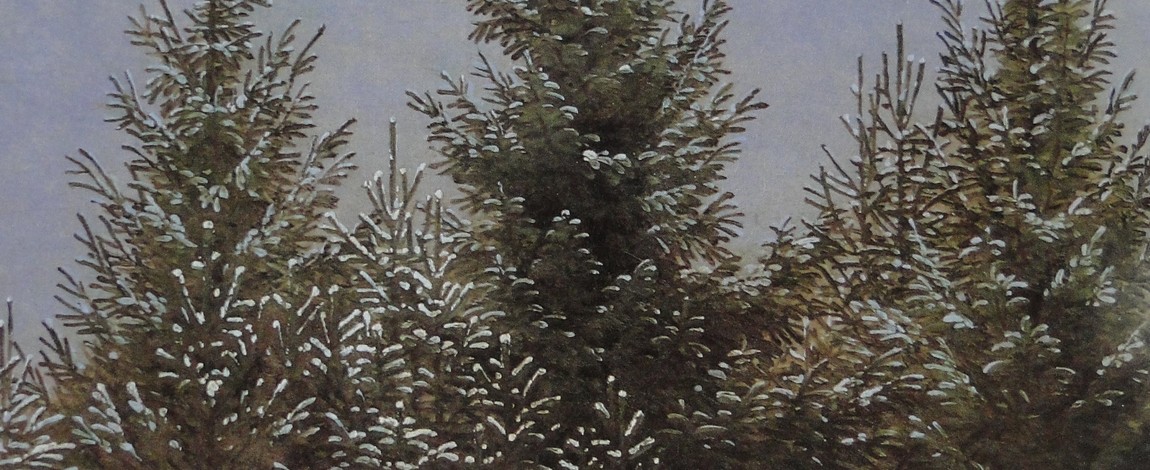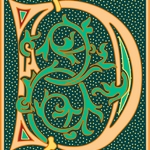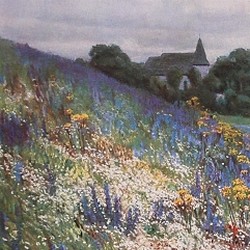
Music has a great evoking power, that's something that you, my dear reader, know well. Every so often, we hear unexpectedly a melody that we haven't heard for a long time; it transports us to a special time, reminds us of somebody or revive a feeling. Heinrich Heine also knew this evokin power, as Dichterliebe's poet did.
In Hör' ich das Liedchen klingen, the poet hears a little song that his beloved used to sing, and that shake him; the grief strangles him so violently that he feels his heart almost burst. And then he feels compelled to run up, into the woods. In other words, Heine uses a typically romantic poetic stylistic device: the poet takes refuge in nature. In previous songs we heard how he usually addresses birds and flowers; in Und wüssten's die Blumen he goes further and invokes stars as well, but this time he shelters in the deepest of the forest.
The poem, the words Heine chooses, suggests some violence; at least, vehemence. Instead, in a clear contrast to the previous Lied, Das ist ein Flöten und Geigen, Schumann presents as a song characterized by introspection, sad and sorrowed, of simple harmonies and a melancholic vocal line. After a short four-bar prelude, the voice sings piano, while the accompaniment makes us think of tears that slide slowly.
Heine reflects accurately and with economy of means the poet's reaction to the little song, and when Schumann sets it into music, he seems to share this economy until postlude arrives. Out of the thirty bars the song lasts, twelve are for postlude; it is therefore as long as a third stanza, and we assume a postlude so long is trying to tell us something. Is the melody we hear, which we heard at the beginning of the song, the little song the girl used to sing? The piano elaborates this initial notes, develops them in several voices and incorporates new material; the postlude takes almost an independent life from the song. Maybe now we're recalling with poet, maybe we hear his tears, maybe we hear like, finally, his grief dissolves in tears.
Listening to the songs of a cycle isolate, as we do here, is a kind of treason to the cycle, all the more so when, as in Dichterliebe, the music of the different songs is so well linked. However, this kind of treason, which I assume as inevitable, and can only try to correct by inviting you to listen to the whole cycle, has a small advantage: because we have a more distant context, all songs take on the same perceptual significance. It is not surprising that, during the cycle's audition, especially in concert, some songs go virtually unnoticed because they are musically more introspective, and this may be the case with Hör' ich das Liedchen klingen. Take advantage of the performance of Ernst Haefliger and Eric Werba to listen to this little wonder with all the attention, as if it were the first time, and the next time you hear the whole cycle, think about it!
Hör’ ich das Liedchen klingen,
Das einst die Liebste sang,
So will mir die Brust zerspringen
Von wildem Schmerzendrang.
Es treibt mich ein dunkles Sehnen
Hinauf zur Waldeshöh’,
Dort löst sich auf in Tränen
Mein übergrosses Weh’.
Please follow this link if you need an English translation.
















